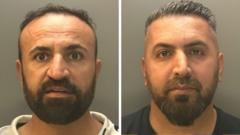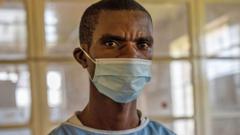By Victoria Levin and Noël Muller
The OECD is famous for PISA, the tests that assess the performance of 15-year-olds across over 100 countries in reading, math, and science every three years since 2000. The results of the latest round in 2022 showed that Latin American adolescents are in a learning crisis: out of every four students in the region, three do not have basic math skills and two do not have basic reading skills.
Recently, the OECD released findings from the second wave of a cross-country study measuring adolescent students’ other broad set of foundational skills – their socioemotional skills: the 2023 Survey on Social and Emotional Skills (SSES). What does the survey tell us about these skills of Latin American adolescents for managing personal and social situations, which are vital for education, employment, health, well-being, and lower violence and crime?
The 2023 SSES surveyed 15-year-old students in 6 countries and 10 cities. In Latin America, it included 3 countries (Chile, Peru, and Mexico; Mexico’s data had some technical issues and do not appear in the main report) and two cities (Bogota, Colombia’s capital, and Sobral, a municipality in Brazil’s state of Ceará, which had a spectacular increase in learning since the mid-2000s; both cities also surveyed 10-year-old students).
The SSES measures 15 skills across five domains:
- Emotional regulation skills (stress resistance, optimism, emotional control)
- Task performance skills (persistence, self-control, responsibility, achievement motivation)
- Engaging with others skills (assertiveness, sociability, energy)
- Collaboration skills (empathy, trust)
- Open-mindedness skills (curiosity, tolerance, creativity)
The measures consist of the aggregation of students’ degree of agreement with statements about themselves, such as “I stay calm even in tense situations.”
Since students live in different cultures and contexts, they can reflect differently on these subjective statements, which prevent meaningful cross-site comparisons of average scores and levels of proficiency. Rather, surveys like SSES are designed to compare differences across subgroups and over time.
Key findings from the 2023 SSES:
- Global factors seem to have hindered adolescents’ socioemotional skills
In 2023, 10- and 15-year old students in Bogota had lower levels of most socioemotional skills than their peers of the same age in 2019. (Bogota is one of the only two cities that participated in both SSES waves, 2019 and 2023; Helsinki, Finland, being the other). The greatest drops were seen in open-mindedness skills (curiosity, creativity, and tolerance) and in optimism. Girls experienced greater reductions in emotional control, energy, stress resistance, and optimism.
This negative trend is concerning as students with higher curiosity have better grades in reading, math, and arts, and skip school less often. Besides, students with higher open-mindedness skills are also more likely to have more ambitious educational and career aspirations and to participate in career development activities (e.g. internships).
The decrease in socioemotional skills between 2019 and 2023 was also observed in Helsinki, suggesting that global factors like the COVID-19 pandemic and the economic instability that followed are the main suspects, just as school closures during COVID-19 hampered learning.
The results might also be linked to the global decline in youth’s mental health and their increasing use of smartphones and social networks, which are prone to isolate youth and divert them from offline creative or social activities.
- Socioemotional development is a bumpy road
In Bogota and Sobral, 10-year-olds had higher scores in most socioemotional skills than 15-year-olds, especially for trust, energy, and optimism, the most strongly linked to health and well-being outcomes. Though it is true for all 5 cities that have data for both age groups, the two Latin American cities have the largest gaps.
This finding confirms that skills development is a cumulative but not linear process, and aligns with data from California on students’ socioemotional skills between grades 4 and 12. Adolescence comes with its challenges, and adolescents pay more attention to how they compare to their peers, which may lead them to view themselves less favorably, by contrast to more optimistic younger children.
- Gender gaps appear earlier in Latin America
In all Latin American sites (Chile, Peru, Bogota, Sobral), 15-year-old girls report lower levels of emotional regulation skills (stress resistance, emotional control, optimism), as well as energy and sociability than boys. These gender gaps are seen in most surveyed sites. However, girls’ lag in those skills are larger in Latin American sites for 15-year-olds, and are already observed among 10-year-olds in Bogota and Sobral.
In sites outside of Latin America, girls report higher levels of some socioemotional skills compared to boys, but this was not true for most Latin American sites.
- Gaps between poorer and richer students vary across sites
In all surveyed sites, poorer students have lower levels of most socioemotional skills. Chile is one of the sites with some of the larger gaps in most socioemotional skills between poorer and richer students. At the same time, there are almost no gaps between poorer and richer students in Peru and only modest ones in Bogota, which is surprising. In Bogota, strong gaps in cognitive and socioemotional skills among much younger children were observed in 2011 and these gaps were increasing between 6 and 42 months. In Peru, there was no wealth gradient in socioemotional skills at age 8, in contrast to cognitive skills, but inequalities in socioemotional skills emerged by age 12 and widened through age 19 (ungated paper).
The SSES findings might differ from the other studies because 15-year-old students represent only a subset of this age group, as poorer adolescents are more likely to have dropped out school by the time they reach 15.
What can be done?
The 2023 SSES provide a worrying signal that many Latin American adolescents, who have experienced unprecedented disruption of their learning, lack the socioemotional skills to enter adulthood in a challenging world.
However, these skills can be fostered throughout life, in schools, homes, and beyond, and adolescence presents an opportunity to remediate or reinforce them. In-school programs have taken the form of curriculum for dedicated classes (e.g. Colombia, Mexico, and Peru). After school programs have also helped improving school engagement, improving behaviors, and reducing crimes (e.g. Central America, the US, and Mexico).
The SSES is a welcome new effort to measure skills that matter among adolescents. Let’s hope it will have the same influence as its older sibling, PISA, in putting valuable skills on top of the education policy agenda.
![]()
The post The 2023 “PISA” for socioemotional skills: are teenagers in Latin America alright? appeared first on Caribbean News Global.

